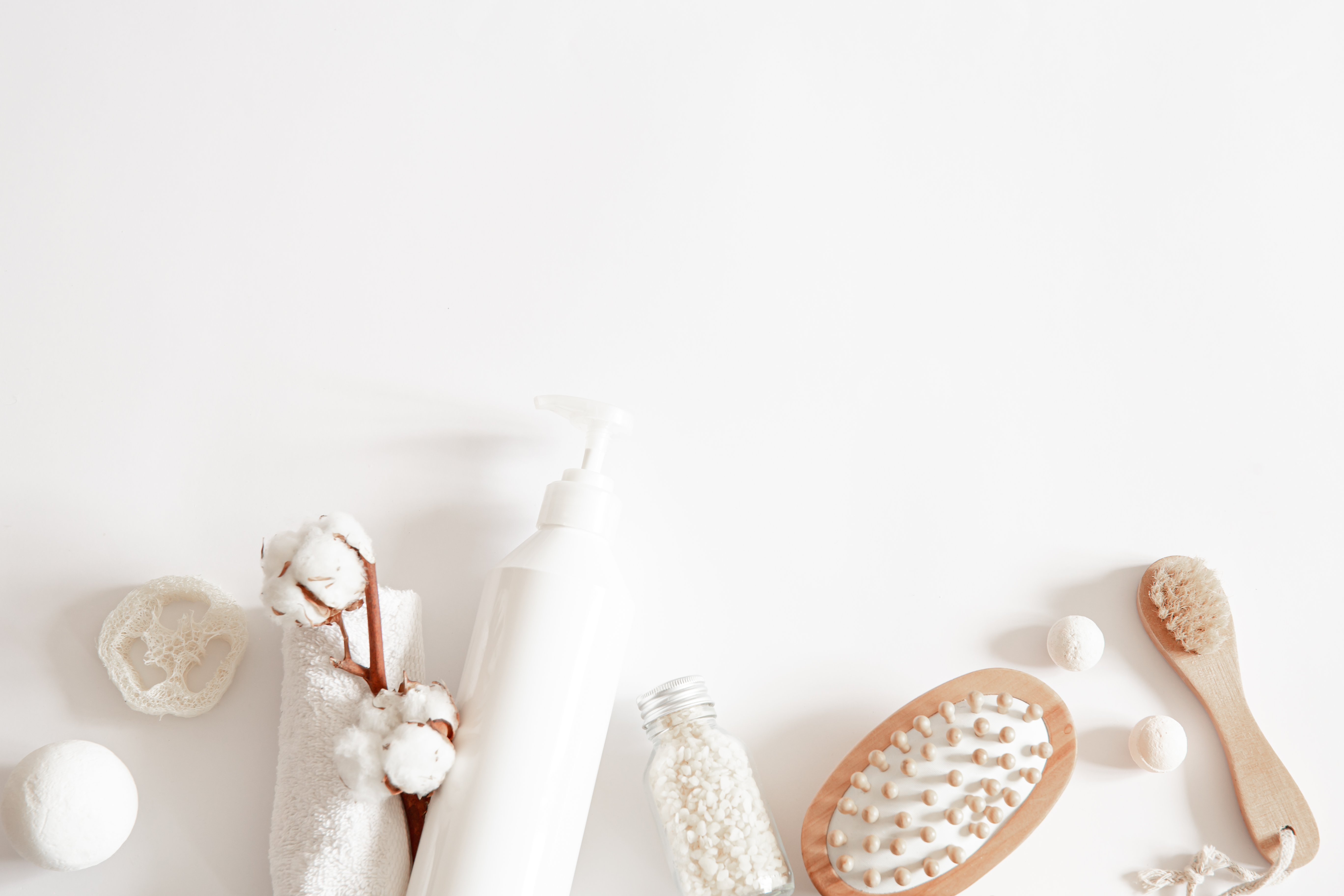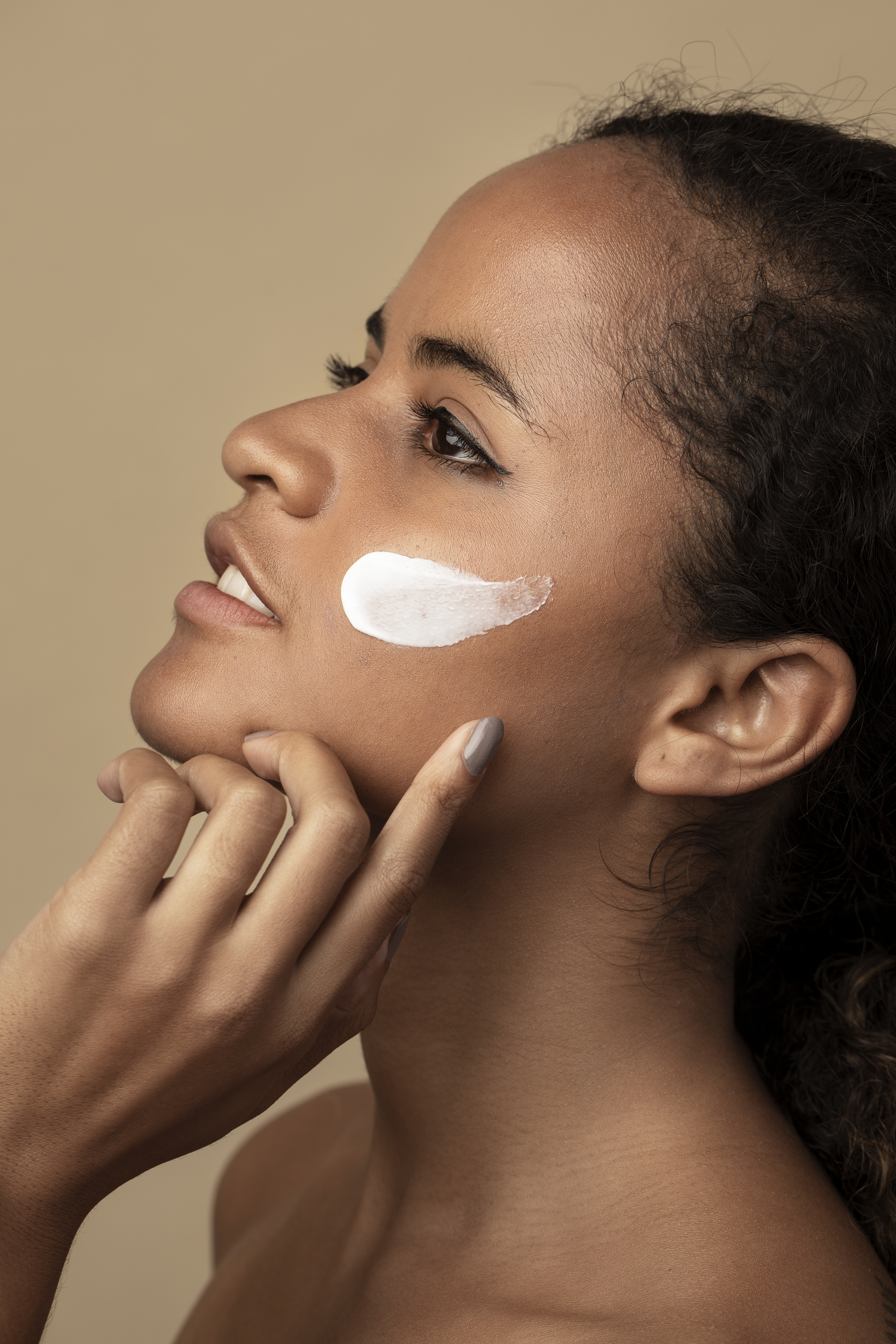
Skin Types: Sensitive Skin 101
The four main skin types are dry skin, oily skin, combination skin, and normal skin. I’m sure you’ve heard of these in some way, shape, or form. However, if you have not, make sure to read our blogs on oily and dry skincare tips.
But did you know that skin types can go beyond these Big Four? From acne-prone to sensitive, your skin can be further classified based on its concerns and attributes. Acne-prone is just as you imagined it — skin prone to acne. But what exactly is meant by sensitive skin and how should people with sensitive skin care for their condition?

What is sensitive skin?
Sensitive skin, as defined by Medical News Today, is skin that is more easily susceptible to inflammation or adverse skin reactions.
What causes sensitive skin?
Although sensitive skin may be the result of genetics, factors like the environment and harsh product ingredients do have a significant part in triggering sensitive skin types. Environmental factors can include excessive sun exposure and air pollution. Being that it is difficult to remove the stimuli in these cases, taking precautions through skin barrier repairing skincare is crucial. Additionally, monitoring what you put onto your skin can be extremely helpful.
Which ingredients to avoid?
In terms of ingredients more likely to sensitize the skin, alcohol, fragrance, and harsh exfoliants claim the top three places as sensitive skin enemies.
Alcohol
Known for its fast drying capabilities, alcohol easily disrupts the skin’s moisture levels, leading to a compromised skin microbiome and barrier. However, despite their bad reputation, not all alcohols are bad. In fact, fatty alcohols like cetyl, stearyl, and cetearyl alcohol are actually help the skin absorb ingredients like Vitamin C and retinol, improving dry skin.
SD alcohol, denatured alcohol (alcohol denat), or isopropyl alcohol, on the other hand, are not good alcohols. Due to their low-molecular weights they are often drying and sensitizing for the skin.
Fragrance
Whether it be natural or synthetic, fragrance is a sensitizing ingredient for all skin types. Gradually weakening the inner layers of the skin, products with fragrance cause minor issues in the short-run and more severe issues in the long-run.
Harsh exfoliants
Exfoliation is divided into two categories: physical and chemical. The former involves the removal of dead skin with the use of a face brush or scrub. The latter generally involves the use of an AHA or BHA chemical that penetrates the skin and increases its cell turnover rate.
Neither one, used in moderation, is detrimental to the skin. However, with that said, physical exfoliants containing fruit pits and nut shells should be avoided due to their predisposition to micro-tear infliction, and thus irritation.
Additionally, AHA or BHA overuse is also important to avoid irritating sensitive skin. How often you should exfoliate depends on your skin. Some people can use an AHA or BHA twice a day while others are comfortable with once every couple of days. Before you start applying an AHA or BHA religiously, make sure to test the waters and measure how much your skin can handle.
Generally, BHAs are the safer option for sensitive skin types due to their larger molecule size and anti-inflammatory properties. Also, remember not to pair AHAs or BHAs with Vitamin C or retinol as the combination can irritate and over dry the skin. Finally, always wear sunscreen with AHAs or BHAs to protect your skin against UV rays.
How to care for sensitive skin?
We have gone over the main ingredients you should avoid. How do you deal with sensitive skin on the face?

Back to the Basics
Given how connected we are as a world today, trends come and go as they please and it’s so easy to get swept away by the latest skincare regimen. However, as the saying goes, less is more.
Overall, for sensitive skin types, a non-irritating cleanser, moisturizer, and sunscreen with the occasional exfoliant is really more than enough.
Patch Test
That said, I understand that it’s hard not to give into the trends. But, at the very least, make sure to patch test each product before applying it.
To do so, apply a small amount of product onto your neck or any other discreet area and observe your skin. Generally, it is good practice to wait at least 24 hours to ensure that there are no signs of redness or inflammation. If successful, only then should you apply your new products to your face.
Ring Finger Rule
Another skin care tip is to use only your ring finger during your skincare routine. The ring finger, said to be the weakest finger, will avoid imposing unnecessary force on the skin.
Abrasion, whether it be with cotton pads or even hands, can be a source of irritation. Thus, following the ring finger rule, omits any potential.
Lukewarm Water
When showering or conducting your skincare routine, it is best to maintain a lukewarm water temperature. If the water is too hot, it strips your skin of its natural oils during cleansing. However, if too cold, bacteria is not loosened, creating buildup. A good practice is to first wash with lukewarm water, and finish up with a few splashes of cold water to constrict the blood vessels on the surface of the skin. By doing so, blood flow diverts from surface and deeper into the body’s tissues, improving circulation overall.
What are beneficial and natural ingredients for sensitive skin?
In terms of ingredients suitable for sensitive skin types, aloe, chamomile, and oatmeal are popular choices. Aloe contains various cooling properties that soothe redness, itchiness, and inflammation. Chamomile, a strong antioxidant, soothes acne-prone and sensitive skin with its anti-inflammatory and anti-bacterial properties. Likewise, oatmeal also has these beneficial properties in addition to being particularly helpful for dry skin. With its oat lipids and proteins, oatmeal helps repair the skin barrier, thus controlling dryness.

A good body product for sensitive skin that I recommend trying out is Wish Formula’s Aloe Gel infused with aloe powder, beta-glucan, and chamomile extract. While aloe powder and chamomile extract do all the things listed above, beta-glucans help calm irritated skin and help prevent fine lines and wrinkles. They are also helpful with increasing skin regeneration. In combination, this product truly is the best aloe vera gel for sensitive skin. Lightweight but moisturizing, this product never leaves the skin feeling tacky or sticky.
Final Thoughts
Sensitive skin can be nerve-wrecking when every product only seems to further infuriate your skin.
When this happens, take a few moments and remove the complicated skin care products from your skincare routine. Instead, you should go back to the basics: a cleanser, moisturizer, and sunscreen. Also, if possible, try and check that these products are alcohol and fragrance-free to avoid any potential sources of irritation.
Finally, make a strong effort to not touch your skin so as to avoid any unnecessary contact. Along the same lines, the ring finger rule is a great tip to incorporate into your skincare routine. Even though it is tedious to only use your ringer finger, remember it’s a few extra seconds of care for a lifetime of good skin!





